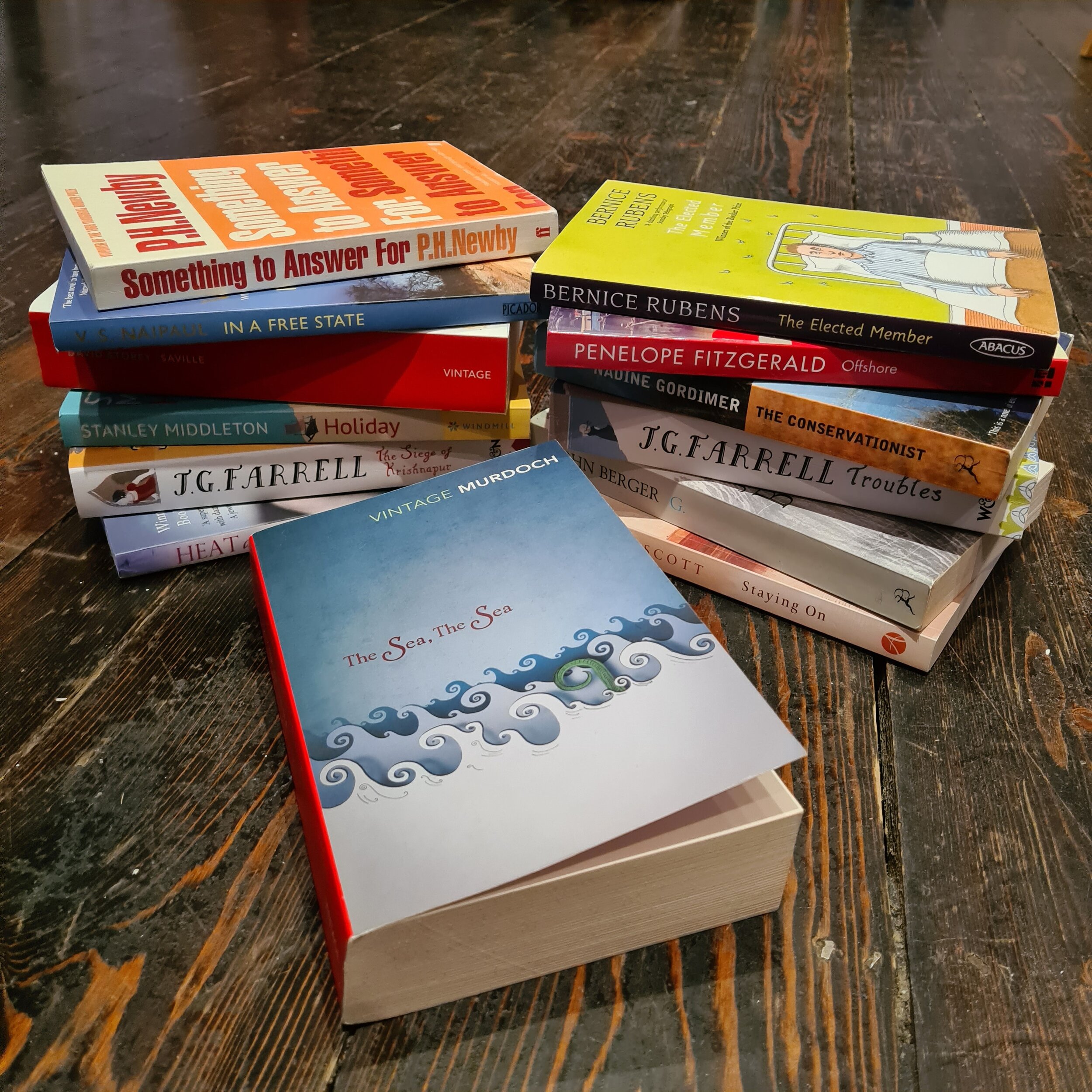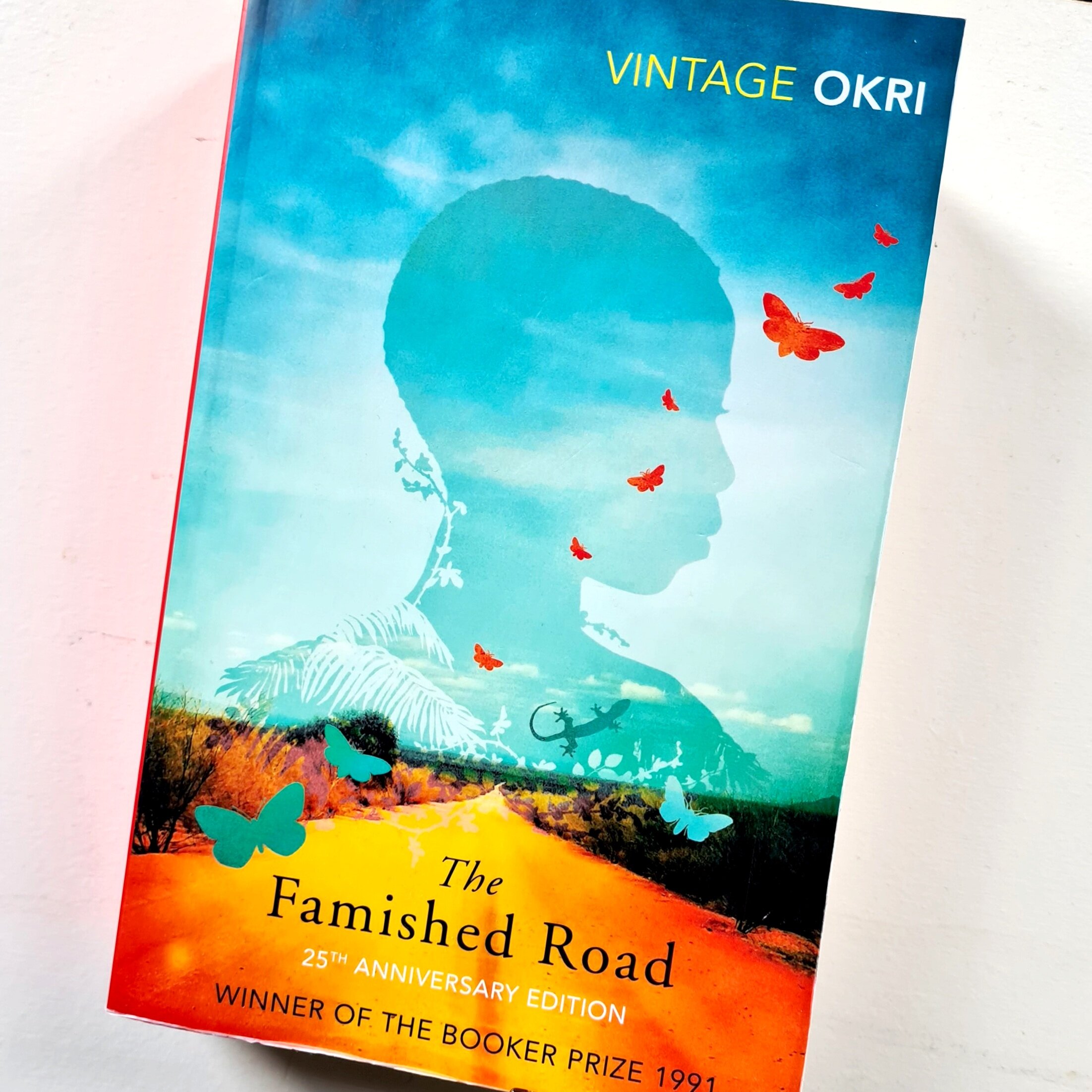
WORST TO BEST
After 57 books [2023 edit: make that 59!], approaching 70 blog posts and around 18 months, I reached the end of my chronological journey through the prizewinners. I read them all!
And do you know what? I enjoyed them all. Some were challenging but rewarding. Some were more lightweight than others. Some wound me up a bit because they beat more deserving winners. But none of them were bad.
Why should they be, I guess? This is one of the world's foremost literary prizes. I wasn't coming into it expecting trash. So just before I dive into this epic recap post, let me be clear: I'm using the full rating scale here. A few books scored 4 or 4.5, which I fear many have taken as being cases of me sticking the boot in. Not at all - they're slightly below average. If I'd hated them, I'd have used 0 or 1.
Hindsight is always a lovely thing to have though, and as I go through it's fairly obvious that there are books that stuck with me that I've underscored, and others that I can barely remember (or that everyone else seems to hate: hello Finkler) where I've done the opposite.
What did I look for in scoring and ranking the winners? I started out by saying it was pure enjoyability - I was going to rate based on how much I enjoyed the book. But I've come to realise that such a purist scoring system is a bit of a fantasy.
Of course I was influenced by the perceived "greatness" of a book, and by whether it felt like it was doing something fresh, new and innovative. And obviously on those numerous occasions where I said a book had more to be admired than enjoyed, the admiration contributed a good few points to my score...
Worst to Best, then, here we go...
59. The Old Devils, Kingsley Amis (1986) – 4
(GoodReads ranking: 55, equivalent score 7)
A supposedly comic affair about a bunch of broadly hard to like or care about alcoholics. Well done though Kingsley, you did write Lucky Jim a while back so here’s a gong for your mantelpiece. Beat The Handmaid’s Tale, unbelievably.
58. Hotel du Lac, Anita Brookner (1984) – 4.5
(GoodReads ranking: 42, equivalent score 7)
It has loads of apparently strong female characters but I can’t remember anything about any of them. Everyone thinks I was very harsh on this one. But I honestly can’t remember much about it at all. It has a pretty cover though?
57. Amsterdam, Ian McEwan (1998) – 5
(GoodReads ranking: 52, equivalent score 7)
We ballsed up on Enduring Love and maybe some earlier works, and didn’t have the patience to wait for an Atonement moment. Surprisingly not as bad as you may have heard, but laughable that it won a major prize. More alcoholic blokes doing something or other I don’t really remember. Non essential.
56. Staying On, Paul Scott (1977) – 5
(GoodReads ranking: 21, equivalent score 8)
Raj Quartet bonus track that evidently went down well with series superfans on GoodReads. Hitting the 70s Booker bullseye with its wistful Colonial nostalgia and throwing in a blatantly racist caricature for good measure, this is one I could have done without to be honest.
55. The Ghost Road, Pat Barker (1995) – 5.5
(GoodReads ranking: 9, equivalent score 8)
I’m told that this is significantly better if you’ve read the previous two parts of the Regeneration trilogy, which I haven’t. Makes sense though, and the strong GoodReads rating would seem to back that up. I’m still not convinced it stands up on its own, though, and scored it accordingly. Two major stories in it, one of which was worth a 7.5 and the other more like a 4.
54. Something to Answer For, P. H. Newby (1969) – 5.5
(GoodReads ranking: 58, equivalent score 6)
A sort of weird, trippy take on a James Bond story, set in Egypt around the Suez crisis. Kicked off the Booker on a suitably boozy and bizarre note, and possibly suffered for lack of other benchmarks as it was the first I read. Worthwhile reading as nothing else like it has won since.
53. The Famished Road, Ben Okri (1991) – 6
(GoodReads ranking: 35, equivalent score 7.5)
In the middle of a cluster of really interesting books that I didn’t quite get on with we have the Prize’s belated first Black winner. The writing is incredible, the imagination on display possibly beyond almost anything else in this list. But I didn’t get on with its spiritualism and found it a bit of a slog. In retrospect, its vivid evocations of an Africa both real and fantastical deserved better than I gave it – it stuck in the memory and was a deserving winner.
52. G., John Berger - 6
(GoodReads ranking: 39, equivalent score 7.5)
I’m somewhat surprised by the high GoodReads ranking here, but my assumption is that not many people have actually read it and those who have (apart from me) are all super smart. This is the Booker at its most intellectual, adventurous, and unusual. It also had a few viscerally memorable scenes that are embedded on my consciousness. It’s not the easiest of reads though, and a few brilliant moments does not a brilliant book make (even if several of those brilliant moments are penis doodles).
51. Paddy Clarke Ha Ha Ha, Roddy Doyle (1993) – 6
(GoodReads ranking: 30, equivalent score 7.5)
Oh dear, what happens in this one again? An Irish kid. Doesn’t get on with his parents. Unusual-ish for the time first-person narrative in the voice of a child, which I think maybe got on my nerves after a while.










